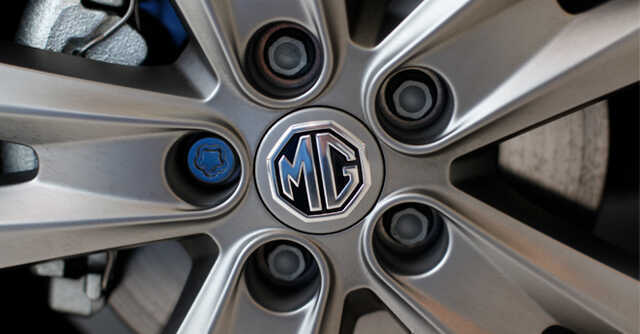
With Level 2 automation, MG Astor makes affordable self-driving cars a reality for Indian roads


British carmaker MG Motors, last week, introduced the MG Astor on Indian roads. With Level 2 self-driving technology, the car can temporarily take control of the steering and speed of the vehicle.
This is not the first connected car in India, and neither is Level 2 autonomous driving. However, the MG Astor is expected to be priced between Rs. 10 lakh and Rs. 17 lakh, making it much cheaper than the Mercedes and Volvo vehicles that come with autonomous level 2 autonomous driving tech in India but are priced at a little over Rs 40 lakh.
“As it is relatively cheaper to match premium brands’ offerings around connectivity, volume brands can also use their connected features to compete with the upper end of the market,” said Vinay Raghunath, a Partner at EY, who specializes in the automotive and mobility sectors, in a blog post. An August 2020 report from the firm noted that connected cars are “poised to become a common phenomenon” in India in the new future.

The above-cited EY Report, which was titled “The car is connected now! But are we safe?”, predicted that telematics-based insurance, SOS services, GPS tracking etc. will become popular among cars in India in the next few years. The car, thus, becomes an intelligent platform rather than a collection of standalone smart features.
To be sure, there are six levels of self-driving vehicles--0 to 5. Level 0 means absolutely no automation. Level 1 cars have a single automated system, like cruise control, which controls acceleration. Level 2 cars have an ADAS or advanced driver assistance system that can take control of both steering and acceleration/deceleration at the same time.
Level 3 automation includes environment detection, meaning the car can make informed decisions based on its surroundings, while Level 4 cars can almost completely run themselves, but with an option for human interference. Level 5 cars are fully automated.

Read: MG Motor India picks AI startup Voxomos for its developer programme
Incidentally, there are no Level 5 cars on any road in the world as yet. Even Elon Musk's Tesla cars are not fully Level 3 ones.
Meanwhile, cars like the Mahindra XUV300, which is priced at Rs.7-13 lakh (depending on the model and features), do use e-SIM-based connected systems. The Astor, however, takes things a step forward. Other than autonomous driving tech, it also comes with a so-called Digital Passport. Driving data from sensors in the cars are stored in a blockchain-based platform. This data can then be used to decide the resale value of the car, insurance premiums and possibly more. Better drivers can, thus, potentially get lower premiums and better-maintained cars can achieve higher resale values.

Praphul Chandra, founder of Koinearth, which is the company that built the Astor’s Digital Passport feature, said it plans to work with more auto and insurance firms to deploy these kinds of technologies in cars.
Watch: Gaurav Gupta on MG Motor India’s EV push
“With AI-enabled connected car tech, we are making contact with the Mercedes-Benz World even more individual, transparent, attractive and convenient. Connected cars that leverage AI ensure customers are another step closer to turning the car into a mobile assistant through in-car, smart-phone and home connectivity solutions,” said Martin Schwenk, Managing Director and CEO of Mercedes-Benz India.

Sidharth Jain, co-founding partner of PSL Advocates & Solicitors, noted that while India isn’t too far from the “idea of autonomous technology in vehicles”, it’s not as simple here as in other countries.
“Autonomous vehicles pose legal and labour concerns, like ascertaining the liability in case of an accident and the loss of employment. In 2018, the Government had completely rejected the idea of autonomous vehicles. However, lately, amendments were proposed in the Motor Vehicles Act in favour of autonomous technology which is subject to the approval of Legislature,” he said, noting that road and traffic conditions are a concern too, though tests are being carried out in select locations in the country.
Schwenk noted that Mercedes, which introduced ADAS in India in 2019, will introduce the more advanced level 3 autonomous tech globally this year, and can bring that tech to India if regulations permit.

“Currently there's no law in India on autonomous tech or driverless mobility. The Motor Vehicles Act amendment of 2019 could have addressed some innovation and sandboxing on this. But a policy and legal framework on artificial intelligence has to precede autonomous tech. Since the Indian AI ecosystem is fast evolving, it's not premature to come up with an AI policy/ framework, just like the EU is contemplating,” said Nakul Batra, Associate Partner, DSK Legal.
Connected car technologies are set to grow going forward. Last week, South Korean company Kia said it had sold over 1.5 lakh cars with connected software in the last two years in India. That’s counting a pandemic-driven year in between.
The use of advanced technologies and building cars as a platform will only grow with the move towards electric mobility. In December last year, the India Energy Storage Alliance (IESA) said the country is expected to hit over 63 lakh units of EVs per annum.

